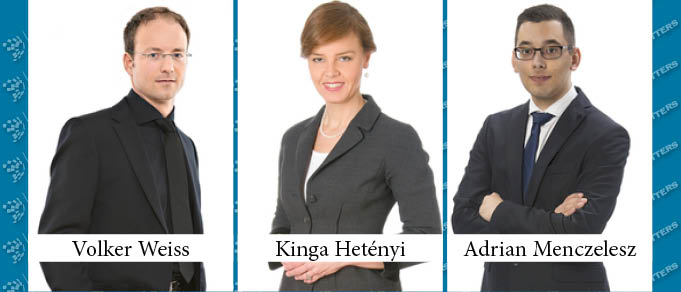On 25 May 2020, the Government of Hungary adopted a new decree on the screening of foreign investments in Hungary (the "Decree"). The new screening regime aims to protect public security, order and health during the COVID-19 pandemic, and introduced a new approval requirement for investments into certain Hungarian companies. The screening will be carried out by the Minister of National Economy (the "Minister"). The Decree entered into force on 26 May 2020 while leaving the earlier FDI screening mechanism unaffected (see our earlier FDI screening article). As a result, two parallel FDI screening mechanisms now apply in Hungary.
The FDI screening regime introduced in 2018 is limited to a much narrower scope of companies and transactions and is overseen by the Minister of the Interior. The new screening instrument will be in force only until 31 December 2020.
Scope of the Decree
Under the Decree, investments by foreign investors acquiring an interest exceeding (i) 10 % and a value of HUF 350m (approx. EUR 1m), (ii) 15 %, 20 % or 50 % irrespective of its value, or (iii) 25 % if acquired by more than one foreign investor, require the approval of the Minister.
A "foreign investor" is (a) a company or organisation domiciled in, or a citizen of, a state outside of the EU, the EEA or Switzerland, or (b) a company or organisation whose majority owner is domiciled in, or a citizen of, a state outside of the EU, the EEA or Switzerland. However, certain acquisitions of a majority interest require the Minister's approval if the foreign investor is a company or other organisation domiciled in the EU, the EEA or Switzerland.
The Decree applies to investments in companies that have their seat in Hungary and at the same time:
- are limited liability or private limited or public (listed) companies; and
- operate in specified "strategic" sectors such as manufacturing of medicines, medical devices or other chemicals, fuel production, telecommunications, retail and wholesale (including motors and cars), manufacturing of electronical devices, machinery, steel and vehicles, defence industry (e.g. manufacturing and trade of arms and ammunition as well as technologies used for military purposes), power generation and distribution, services connected to the state of emergency, financial services (including insurance, brokering and other services), processing of food (including meat, milk, grains, tobacco, fruits and vegetables), agriculture, transport and storage, construction (including the production of building materials), healthcare, tourism (hospitality and cafeteria services), and others.
Procedural provisions and sanctions
Investments subject to the new regime require approval by the Minister. The application for such approval must be submitted to the Minister within 10 days from the date of execution of the agreement. For routine cases, a review period of 45 days is envisaged, while in more complex cases the authority can extend the review period by an additional 15 days.
The Decree provides for a standstill obligation, which means that foreign investors may be registered as a shareholder in the list of shareholders or the book of shares with the Minister's approval.
The implementation of an investment requiring the Minister's approval is null and void without such approval.
In addition, the proposal envisages sanctions for breaching the provisions of the Decree: a fine of up to twice the value of the transaction may be imposed on persons who were obliged to apply for the Minister's approval.
The above is a simplified summary of the Decree. The Decree regulates the cases in which the Minister's approval is required in a very complex manner.
By Volker Weiss, Partner, Kinga Hetenyi, Local Partner, and Adrian Menczelesz, Associate, Schoenherr



